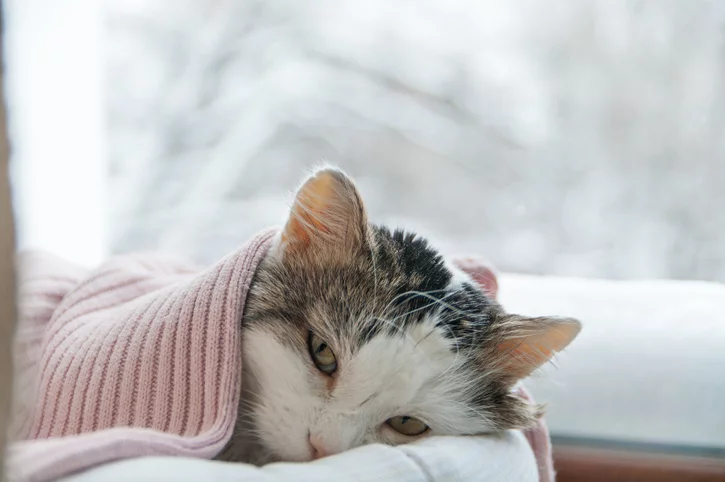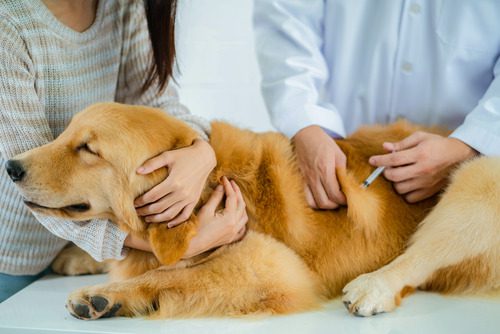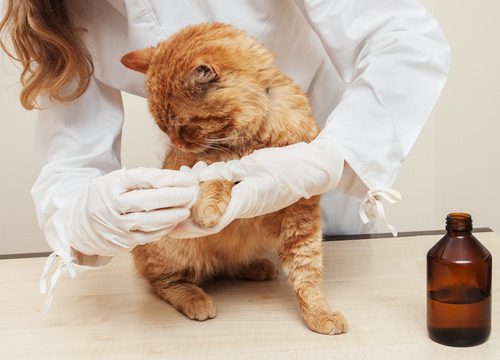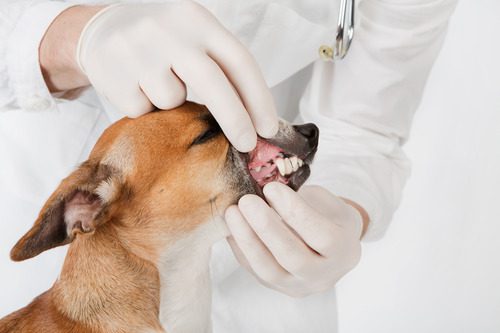
Cats are incredible animals and make excellent pets, but just like any other living creature, they can sometimes fall ill. It’s important to be able to recognize the signs and symptoms that your cat is sick with so you can take the necessary steps to get them the help they need.
This article will outline some of the most common signs and symptoms that your cat may be unwell. It is important to be aware of these signs and to speak with your veterinarian if you notice any changes in your cat’s behavior or health.

Symptoms of Cat Illness
Symptoms of cat illness can vary widely, but some common signs to watch for include:
- Becoming more withdrawn
- Eating less or losing weight
- Sneezing
- Coughing
- Vomiting
- Diarrhea
- Changes in coat condition or grooming habits
- Changes in litter box habits
- Lower energy/activity levels
- Abnormal breathing
It is important to be aware of these signs and to speak with your veterinarian if you notice any changes in your cat’s health.
Changes in Appetite
Cats may eat less than usual or refuse to eat altogether if they are feeling sick. This can be a sign of a variety of underlying conditions, such as dental issues, digestive problems, or organ dysfunction. A change in appetite can also be a sign of stress or anxiety. If your cat’s appetite changes significantly or if they stop eating altogether, it is important to speak with your veterinarian as soon as possible to determine the cause and provide appropriate treatment.
Change in Activity Level
Cats may be less active or more sluggish than usual if they are feeling sick. This can be a sign of a variety of underlying conditions, such as infection, inflammation, or organ dysfunction. A change in activity level can also be a sign of stress or anxiety.
Abnormal Breathing
Cats may pant, breathe rapidly or shallowly, or have difficulty breathing if they are feeling sick. This can be a sign of a variety of underlying conditions, such as respiratory infections, heart problems, or allergies. Abnormal breathing can also be a sign of stress or anxiety.
Vomiting or Diarrhea
Vomiting and diarrhea can be signs that a cat is unwell. Cats may vomit or have diarrhea due to a variety of underlying conditions, such as digestive problems, infections, or ingesting something toxic. Vomiting and diarrhea can also be a sign of stress or anxiety. If your cat is vomiting or experiencing diarrhea, it is important to speak with your veterinarian as soon as possible to determine the cause and provide appropriate treatment.
Changes in Grooming Habits
Changes in grooming habits can be a sign that your cat is feeling sick. Cats are known for being fastidious groomers, and if they are feeling sick, they may groom less frequently or stop grooming altogether. This can be a sign of a variety of underlying conditions, such as dental problems, skin irritation, or organ dysfunction. Changes in grooming habits can also be a sign of stress or anxiety.
Bad Odor
Cats may have a bad odor due to a variety of underlying conditions, such as dental problems, skin infections, or organ dysfunction.
Changes in Behavior
Cats may exhibit changes in behavior due to a variety of underlying conditions, such as pain or discomfort. Changes in behavior can also be a sign of stress or anxiety.
What to Do if Your Cat is Showing Signs of Being Sick
If your cat is showing signs of being sick, it is important to take action to address their condition. Here are some steps you can take to help your cat feel better:
- Visit the Vet: If you notice any changes in your cat’s health, it is important to speak with your veterinarian as soon as possible. They can help determine the cause of your cat’s symptoms and provide appropriate treatment.
- Keep a Close Watch on your Cat’s Health: Pay close attention to your cat’s behavior and any changes you notice. Keep a record of their symptoms and any changes in their behavior or health, as this information can be helpful to your veterinarian in determining the cause of your cat’s condition.
- Provide a Comfortable Environment for your Cat: Cats may feel more comfortable and secure in a quiet, familiar environment when they are feeling sick. Make sure your cat has a warm, comfortable place to rest, and provide them with any necessary medical supplies or medications.
- Monitor your Cat’s Eating Habits: If your cat is not eating or drinking enough, it is important to monitor their intake and speak with your veterinarian. They may recommend changes to your cat’s diet or suggest ways to encourage your cat to eat or drink more.
- Talk to your Vet about Possible Treatment Options: Your veterinarian will be able to provide guidance on the best course of treatment for your cat’s condition. They may recommend medications, dietary changes, or other treatment options depending on the cause of your cat’s symptoms.
Conclusion
By being aware of these signs and symptoms, you can help to ensure that your cat receives the proper care they need. It is also important to have regular check-ups with your vet to make sure your cat is healthy and happy.
If you have any questions regarding your pet’s health, please give us a call at (615) 778-0880 or request an appointment online! Here at Animal Ark Animal Hospital in Franklin, TN, we are ready to help you and your pet with whatever your needs may be!
Recent Posts
Vaccinations for Dogs: The Importance of Vaccinating Your Dog This Spring
Springtime brings new beginnings and a breath of fresh air, but it also ushers in…
Common Pet Problems Requiring Urgent Care
When our beloved pets face sudden health issues, it can be a worrying time for…
Pet Dental Health Month: Why You Should Give Your Pet a Healthy Smile!
February is Pet Dental Health Month, a time dedicated to raising awareness about the importance…
About Us
Animal Ark Animal Hospital offers exceptional, quality pet care with a highly skilled and compassionate staff who understands what a pet means to you and your family.



